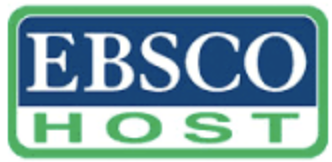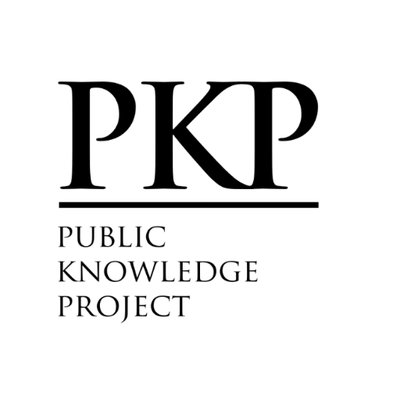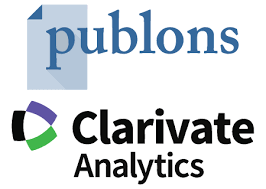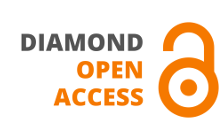Trust within organizations: conceptual contribution
DOI:
https://doi.org/10.59051/joaf.v8i1.91Abstract
Trust is among the most studied concept in the literature, which plays a key role in inter-organizational relationships, yet ambiguity still underlying it. It is characterized by its transversality since trust was analyzed and tested in many fields.
This paper contributes to the knowledge in several ways. Firstly, it identifies the emergence of trust within organizations and provides some definitions. Secondly, it illustrates the conditions of the development of trust. Lastly, the paper analyses two theoretical frameworks of trust.
Downloads
References
Balambo, M.A. (2012), L'impact de la culture nationale sur la nature de l'intégration des supply chains : une étude à travers l'effet médiateur de la nature de la confiance : une application aux équipementiers automobiles marocains, Thèse de doctorat, Université Marseille Aix-en-Provence.
Barney, B et Hansen, H. (1994), Trustworthiness as a source of competitive advantage, Strategic Management Journal, 15(supplement S1), 175-190.
Bhattacharya, R., Devinney, T. and Pillutla, M. (1998), A formal model of trust based on outcomes, (special topic forum on trust in and between organizations), Academy of Management Review, 23 (3), pp. 459-73.
Bijlsma, K et Koopman. P. (2003), Introduction: trust within organizations, Personal Review, 32(5), 543-555.
Colquitt, J. A. (2001). On the dimensionality of organizational justice: A construct validation of a measure. Journal of Applied Psychology, 86, 386–400.
Colquitt, J. A., & Rodell, J. B. (2011). Justice, trust, and trustworthiness: A longitudinal analysis integrating three theoretical perspectives. Academy of Management Journal, 54(6), 1183-1206.
Cox, J. C., Kerschbamer, R., & Neururer, D. (2016). What is trustworthiness and what drives it?. Games and Economic Behavior, 98, 197-218.
Deutsch, M. (1958), Trust and suspicion, The Journal of Conflict Resolution, 2(4), 265-279.
Deutsch, M., Coleman, P. T., & Marcus, E. C. (Eds.). (2011). The handbook of conflict resolution: Theory and practice. John Wiley & Sons.
Dietz, G et Hartog, D.N.D. (2006) Measuring trust inside organizations, Personnel Review, 35(5), 557-588.
Doney, P et Cannon, J. (1997), An examination of the nature of trust in buyer-seller relationships, Journal of Marketing, 61(2), 35-51.
Folkes, V. S. (1988). Recent attribution research in consumer behavior: A review and new directions. Journal of Consumer Research, 14(4), 548-565.
Heavey, C et Murphy, E. (2012), A proposed cooperation framework for organizations and their leaders, Management Decision, 50(6), 993-1000.
Katok, E., & Pavlov, V. (2013). Fairness in supply chain contracts: A laboratory study. Journal of Operations Management, 31(3), 129-137.
Kong, D. T., Dirks, K. T., & Ferrin, D. L. (2014). Interpersonal trust within negotiations: Meta-analytic evidence, critical contingencies, and directions for future research. Academy of Management Journal, 57(5), 1235-1255.
Laeequddin, M, Sahay, B.S, Sahay, V et Waheed, K.A, (2010), Measuring trust in supply chain partners’ relationships, Measuring Business Excellence, 14(3), 53-69.
Larzelere, R. (1980), The dyadic trust scale: toward understanding interpersonal trust in close relationships, Journal of Marriage and Family, 42(3), 595-604.
Laszlo, Z. (2004), Honesty and trust in economic relationships, Management Research News, 27(7), 57-62.
Lewis, D et Weigert, A. (1985), Trust as a social reality, Social Forces, 63(4), 967-985.
Lu, S. C., Kong, D. T., Ferrin, D. L., & Dirks, K. T. (2017). What are the determinants of interpersonal trust in dyadic negotiations? Meta-analytic evidence and implications for future research. Journal of Trust Research, 1-29.
Luhmann, N. (2000), Familiarity, confidence, trust: problems and alternatives, in D. G. Gambetta (ed), Trust: 94-107. New York: Basil Blackwell.
Luo. Y. (2002), Building trust in cross-cultural collaborations: toward a contingency perspective, Journal of Management, 28(5), 669-694.
Matthews, B.A. and Shimoff, E. (1979), ‘‘Expansion of exchange: monitoring trust levels in ongoing exchange relations’’, Journal of Conflict Resolution, 23(3), 538-60.
McAllister, D. J. (1995). Affect-and cognition-based trust as foundations for interpersonal cooperation in organizations. Academy of Management Journal, 38(1), 24-59.
Mayer, R, Davis, J et Schoorman, F. (1995), An integrative model of organizational trust, Academy of Management Review, 23(3), 709-734.
Moorman, C, Deshpandé, R et Zaltman, G. (1993), Factors affecting trust in market research relationships, Journal of Marketing, 57(1), 81-101.
Morgan, R et Hunt, S. (1994), Trust-commitment theory of relationship marketing, Journal of Marketing, 58(3), 20-38.
Olafsen, A. H., Halvari, H., Forest, J., & Deci, E. L. (2015). Show them the money? The role of pay, managerial need support, and justice in a self‐determination theory model of intrinsic work motivation. Scandinavian Journal of Psychology, 56(4), 447-457.
Parks, C, Joireman, J et Lange, P. (2013), Cooperation, trust and antagonism: how public goods are promoted, Psychological Science in the Public Interest, 14(3), 119-165.
Parra, M, Nalda, A et Perles, G. (2011), Towards a more humanistic understanding of organizational trust, Journal of Management Development, 30(6), 605-614.
Rotter, J.B. (1967), A new scale for the measurement of interpersonal trust’’, Journal of Personality, Vol. 35 No. 4, pp. 651-5.
Rousseau, D, Sitkin, S, Burt, R et Camerer, C. (1998), Not so different after all: a cross-discipline view of trust, Academy of Management Review, 23(3), 393-404.
Samaha, S. A., Palmatier, R. W., & Dant, R. P. (2011). Poisoning relationships: Perceived unfairness in channels of distribution. Journal of Marketing, 75(3), 99-117.
Scholz, R, Blumer, Y et Brand, F. (2012), Risk, Vulnerability, Robustness and resilience from a decision-theoretic perspective », Journal of Risk Research, 15(3), 313-330.
Sichtmann, C. (2007), An analysis of antecedents and consequences of trust in a corporate brand, European Journal of Marketing, 41(9/10), 999-1015.
Vohs, K. D., & Baumeister, R. F. (2016). Handbook of self-regulation: Research, theory, and applications. Guilford Publications.
Li, Y., & Su, A. P. Z. (2010). The determinants of local suppliers’ trust towards foreign buyers. Management International Review, 50(5), 585-611.
Wrightsman, L.S. (1964), Measurement of philosophies of human nature, Psychological Reports, Vol. 14 No. 3, pp. 743-51.
Yong, L et Wilkinson, I. (1989), The role of trust and co-operation in marketing channels: A preliminary study, European Journal of Marketing, 23(2), 109-122.
Zand, D. (1972), Trust and managerial problem solving », Administrative Science Quarterly, 17(2), 229-239.
Downloads
Published
How to Cite
Issue
Section
License
Copyright (c) 2017 Anass YACHOULTI

This work is licensed under a Creative Commons Attribution-NonCommercial-NoDerivatives 4.0 International License.
Authors who publish with this journal agree to the following terms:
- Authors retain copyright and grant the journal right of first publication with the work simultaneously licensed under a Creative Commons Attribution License that allows others to share the work with an acknowledgement of the work's authorship and initial publication in this journal.
- Authors are able to enter into separate, additional contractual arrangements for the non-exclusive distribution of the journal's published version of the work (e.g., post it to an institutional repository or publish it in a book), with an acknowledgement of its initial publication in this journal.
- Authors are permitted and encouraged to post their work online (e.g., in institutional repositories or on their website) prior to and during the submission process, as it can lead to productive exchanges, as well as earlier and greater citation of published work (See The Effect of Open Access).






















